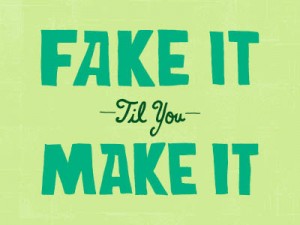Once again I am returning to Athene Donald’s blog to highlight a post about being new, and the start of the academic year. While this clearly applies to Undergraduates, being new is also relevant to Masters and PhD students, as well as staff at any point in their career. I think we can all relate to being new and feeling a bit overwhelmed:
‘Just remembering that you are not alone in being uncertain, nervous and probably totally confused is a good place to start. It is so easy to be fooled into thinking that you are the only one operating in a fog when the reality is that if you don’t feel like that you are probably missing an awful lot that is going on around you. Admitting to being befogged in that first week is not an admission of failure it is an admission of reality. However, remaining struggling in the mists of confusion most certainly means that you aren’t taking control by asking enough questions. Ask your peers but, probably even more importantly, ask all those who are ahead of you in the game……………’














